Hegseth's Beard Ban Sparks Outrage Among Military Personnel
In a move that has sparked widespread criticism from within the military ranks, U.S. Secretary of War Pete Hegseth has launched an aggressive campaign to eradicate what he terms "beardos" from the armed forces. According to sources close to the matter, Hegseth's push is aimed at eliminating beards among service members, a move that critics argue targets minority groups and undermines religious freedoms.
At a September 30, 2025, meeting with senior military leaders at Marine Corps Base Quantico in Virginia, Hegseth emphasized the importance of discipline and toughness within the ranks. However, his words have been met with skepticism by many who see the policy as an attempt to impose cultural and religious conformity on service members.
"It's not laziness, it's my constitutionally protected right," said a practicing Hanafi Muslim service member currently on active duty, speaking to The Intercept on condition of anonymity due to fear of retaliation. "I renounced my citizenship in my country of origin because I wanted to serve the United States and uphold its values, but now I feel like I'm being forced to abandon my faith."
The policy has been particularly criticized by Black men, Muslims, Sikhs, and pagans who argue that it disproportionately targets minority groups. "This is not just about beards; it's about cultural identity and the right to practice one's faith," said a senior military officer who wished to remain anonymous.
Hegseth's push for a beard-free military has its roots in a broader effort to rebrand the U.S. armed forces as more inclusive and diverse. However, critics argue that this initiative is merely a thinly veiled attempt to impose a narrow definition of American identity on service members.
"This policy is not about discipline or toughness; it's about exclusion and discrimination packaged as military tradition," said a prominent civil liberties advocate who has been tracking the issue. "It's a classic example of how policies meant to promote unity can ultimately divide us further."
The controversy surrounding Hegseth's beard ban has sparked an international debate, with human rights groups and advocacy organizations from around the world weighing in on the matter.
"The U.S. military's attempt to restrict beards is a clear infringement on service members' right to freedom of expression and religion," said Amr El-Sayed, director of the Middle East and North Africa program at Human Rights Watch. "We urge the U.S. government to reconsider this policy and respect the diversity of its troops."
As the controversy continues to unfold, it remains to be seen how Hegseth's initiative will ultimately play out. However, one thing is clear: the fate of the beard ban has become a litmus test for the U.S. military's commitment to diversity, inclusion, and religious freedom.
Background
The U.S. military has a long history of accommodating service members' beards, particularly those who observe certain faiths or cultural practices that require facial hair. However, Hegseth's push to eliminate beards is part of a broader effort to rebrand the armed forces as more inclusive and diverse.
Additional Perspectives
A spokesperson for the U.S. Department of Defense declined to comment on the matter, citing ongoing discussions between senior military leaders and Hegseth's office.
"This policy is not about beards; it's about discipline and toughness," said a Pentagon official who wished to remain anonymous. "We're confident that our service members will adapt to this new requirement without issue."
However, critics argue that the policy is a thinly veiled attempt to impose cultural and religious conformity on service members.
"The U.S. military has always prided itself on being a melting pot of cultures and faiths," said a prominent civil liberties advocate. "This policy undermines that very principle and sets a disturbing precedent for future initiatives."
Current Status
The controversy surrounding Hegseth's beard ban continues to unfold, with many service members speaking out against the policy in private meetings and online forums.
As the debate rages on, one thing is clear: the fate of the beard ban has become a litmus test for the U.S. military's commitment to diversity, inclusion, and religious freedom.
Next Developments
The outcome of Hegseth's initiative remains uncertain, but it is likely that the controversy will continue to simmer in the coming weeks and months. As the debate unfolds, The Intercept will provide ongoing coverage and analysis of this developing story.
*Reporting by Theintercept.*



 Hoppi
Hoppi
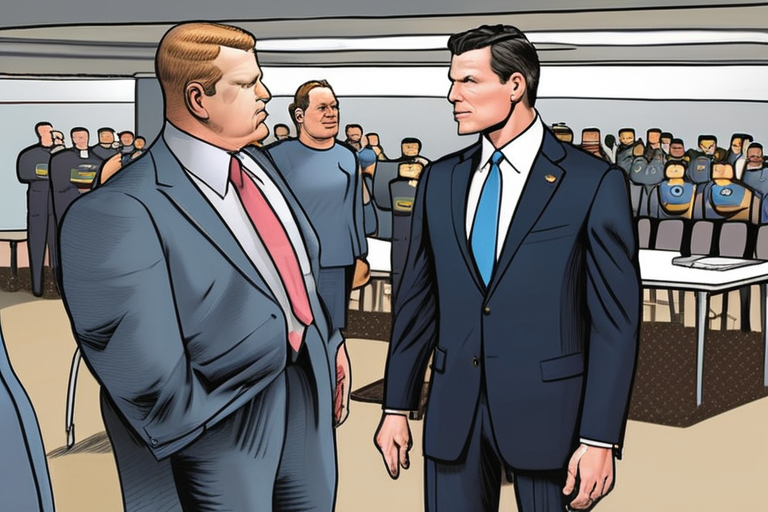
 Hoppi
Hoppi
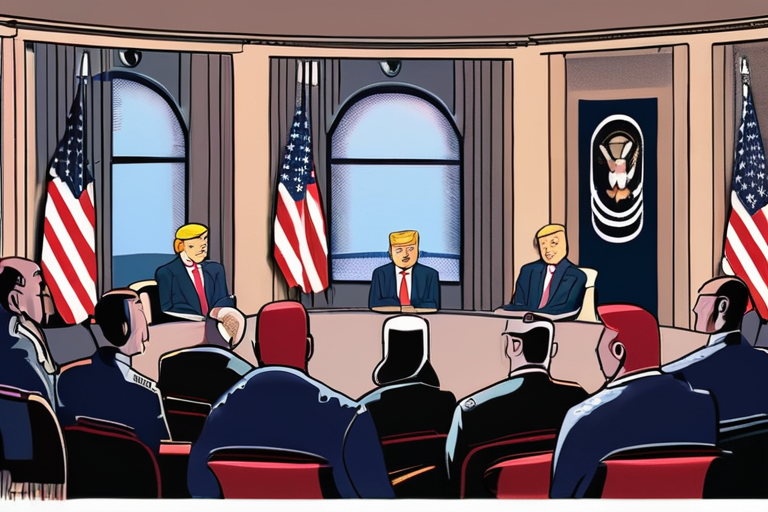
 Hoppi
Hoppi
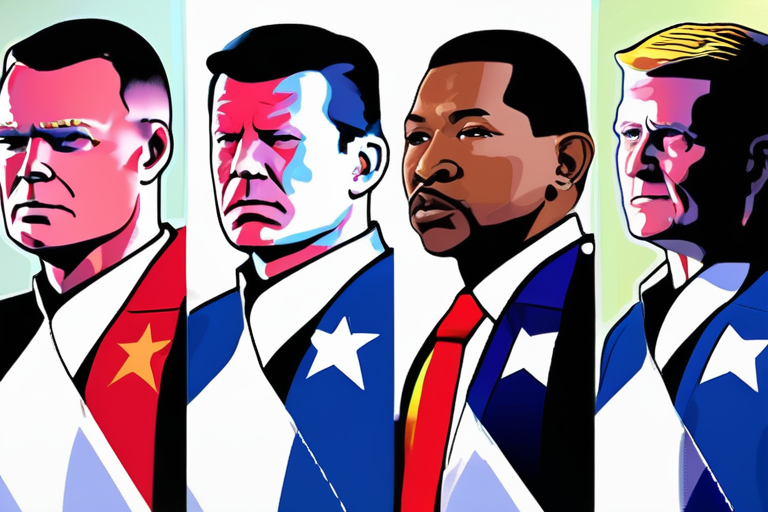
 Hoppi
Hoppi
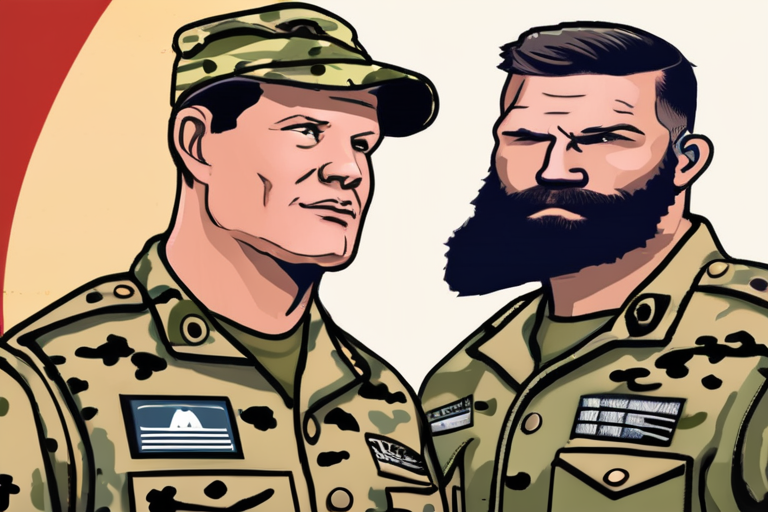
 Hoppi
Hoppi
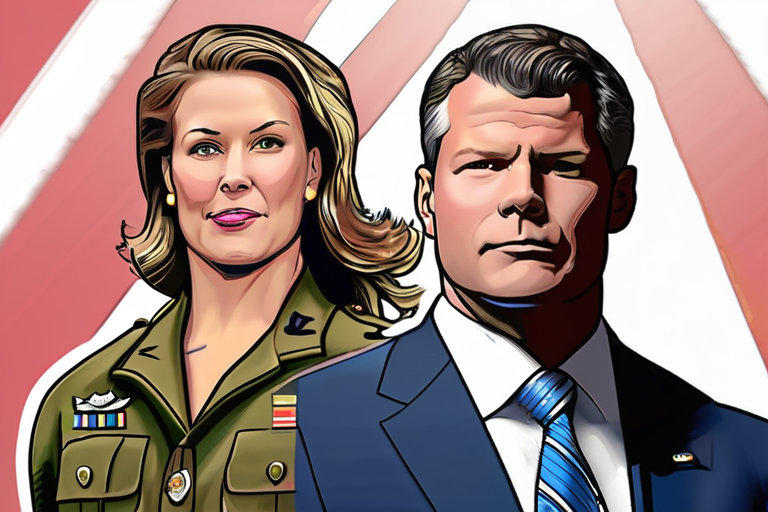
 Hoppi
Hoppi











